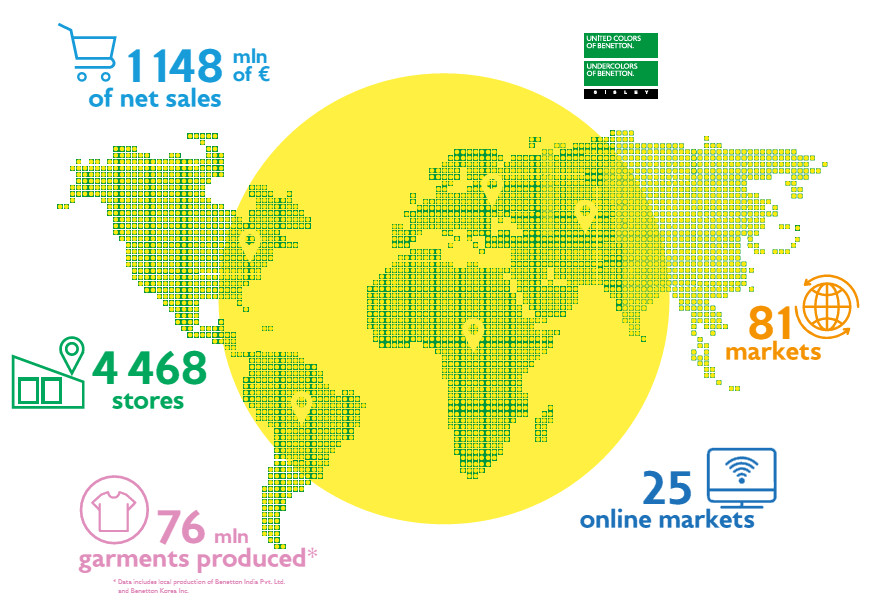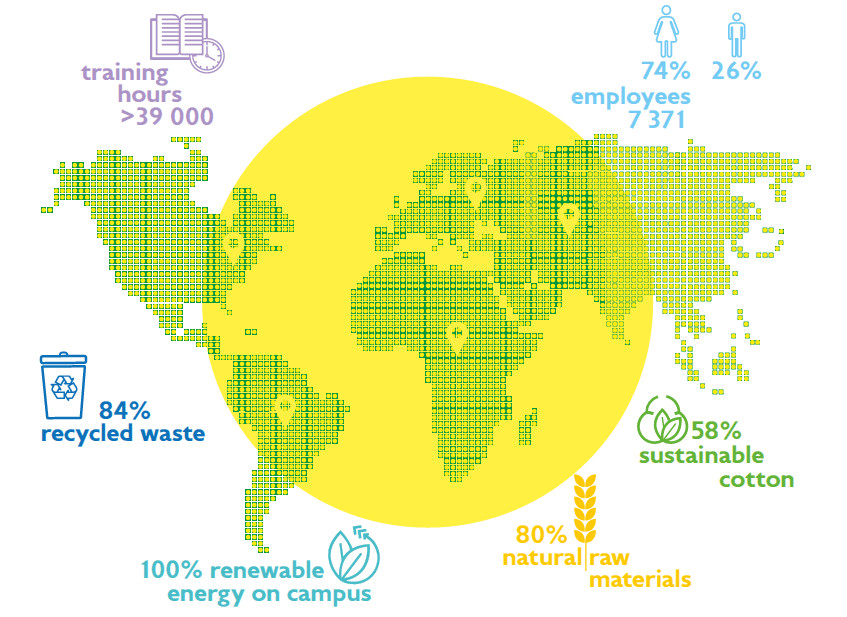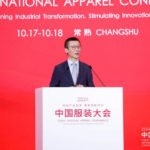 Digital transformation, environmental sustainability, attention to employees and supervision of suppliers: the picture is of a company renewing itself to remain true to its convictions in a constantly evolving landscape
Digital transformation, environmental sustainability, attention to employees and supervision of suppliers: the picture is of a company renewing itself to remain true to its convictions in a constantly evolving landscape
Benetton Group has published its 2019 Integrated Report, which includes its performance in the area of sustainability alongside the company’s financial results.
In economic terms, the company recorded a significant decrease in losses compared with previous years. This went hand in hand with pursuing the planned objectives in terms of sustainability and innovation.
In the product field, the new artistic direction of Jean-Charles de Castelbajac was inaugurated with the first United Colors of Benetton fashion shows during Milan Fashion Week. Separately, the partnership with Woolmark, the global authority on wool, strengthened the commitment to a yarn that is fundamental for a company that has been at the forefront of knitwear for decades.
Moreover, on the commercial front, extensive investments in digital transformation generated a significant increase in e-commerce sales at both the United Colors of Benetton and Sisley brands.
Regarding supply chain management, for several years Benetton Group has implemented a series of practices and initiatives to ensure that everyone involved in the supply chain is treated fairly and properly. The Integrated Report highlights that in 2019 the social impacts of over 300 suppliers were assessed. Seventy percent of these undertook a process of correcting non-conformities, while 18 commercial relationships were ended.
Today, 80 percent of the fibres in United Colors of Benetton garments are of natural origin and therefore have a lower impact on the environment — an encouraging figure in view of an increasingly circular economy. In particular, since 2017 Benetton Group has been a member of the BCI (Better Cotton Initiative), the largest programme in the world dedicated to cotton sustainability. In 2019, 54 percent of the cotton used by Benetton Group was BCI-sourced (calculated as a percentage of total annual cotton requirements), a big leap forward compared with 23 percent the previous year.
Notable results were also attained in terms of logistics, where importing goods by rail/road from China led to a circa 90 percent reduction in CO2 emissions, and waste management, where 84 percent of litter on the Ponzano and Castrette campus was separated for recycling. To make its headquarters more efficient and sustainable, Benetton Group launched ‘Verde Campus’, a project that seeks to promote good environmental practices among employees.
 The Report also announces a series of initiatives and objectives for the future, such as the launch in 2020 of a sustainability platform for Sisley and a complete transition to sustainable cotton in all Benetton Group collections by 2025. The report says: “United Colors of Benetton and Sisley: two fashion brands that together express dedication
The Report also announces a series of initiatives and objectives for the future, such as the launch in 2020 of a sustainability platform for Sisley and a complete transition to sustainable cotton in all Benetton Group collections by 2025. The report says: “United Colors of Benetton and Sisley: two fashion brands that together express dedication
and attention to quality, the two key pillars of Benetton Group. For decades United Colors of Benetton has been synonymous worldwide with knitwear, vivid colors and social commitment. Today, the Group is building on its global reputation to consolidate its standing as an ambassador of accessible fashion. Sisley is a strongly contemporary brand, always in line with current trends, strengthening its position as an interpreter of urban lifestyle for a niche of consumers looking for affordable fashion products.
 These and other future projects will be led by Massimo Renon, who was appointed CEO of the company in April. Holding a degree in Political Science with a specialization in Business Management from Bocconi University and Columbia University in New York, Massimo Renon began his career at Giacomelli Sport, then moved to Luxottica, where he acquired important international experience. In 2010 he joined Ferrari, then Safilo and later Kering Group, where he participated in the establishment and startup of the Eyewear division. From 2017 to April 2020 he was CEO of Marcolin Group.
These and other future projects will be led by Massimo Renon, who was appointed CEO of the company in April. Holding a degree in Political Science with a specialization in Business Management from Bocconi University and Columbia University in New York, Massimo Renon began his career at Giacomelli Sport, then moved to Luxottica, where he acquired important international experience. In 2010 he joined Ferrari, then Safilo and later Kering Group, where he participated in the establishment and startup of the Eyewear division. From 2017 to April 2020 he was CEO of Marcolin Group.





